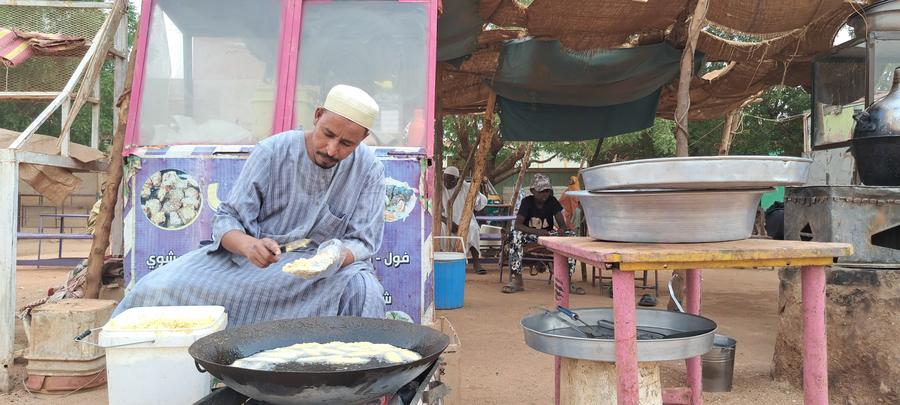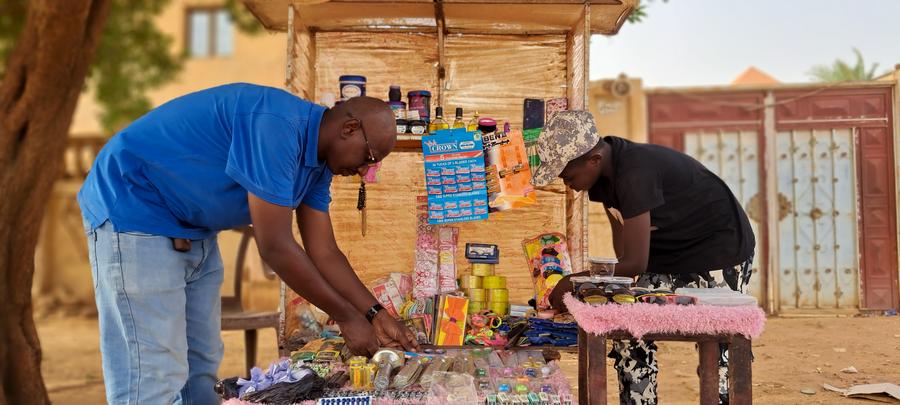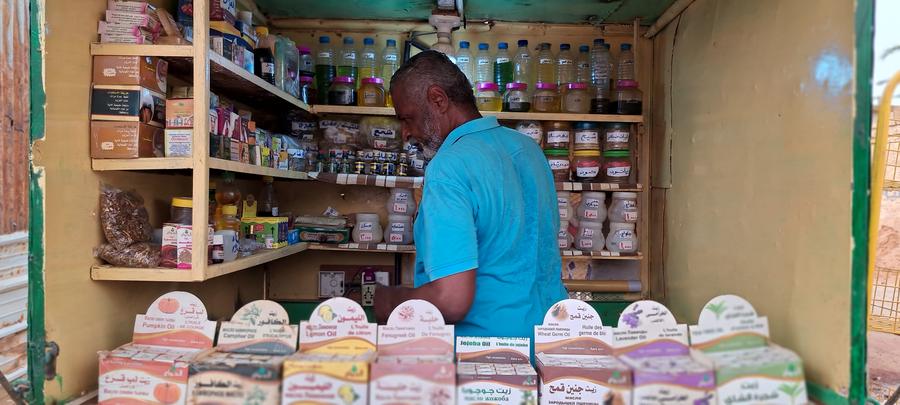Jobs
War-battered Sudanese white-collar workers struggle to live on side jobs

KHARTOUM, June 30 (Xinhua) — The ongoing war in Sudan has shattered technology, health, education, and other public or private services employing numerous skillful professionals.
Sudan has been embroiled in a deadly conflict between the Sudanese Armed Forces and the paramilitary Rapid Support Forces since mid-April 2023, which has claimed more than 16,650 lives, according to the Sudan situation report updated by the UN Office for the Coordination of Humanitarian Affairs in late June.
The war also paralyzed the entire national economy and left many firms bankrupt and public institutions closed, these professionals had to enter the highly volatile market of manual labor or become self-employed.
In the Karari locality of Omdurman city, north of the Sudanese capital Khartoum, a large shelter area for those fleeing war, former info-tech worker Bakri Merghani now sells clothing and accessories.

Before the war, the 41-year-old man served for a prestigious accounting IT company with a large salary in Khartoum.
“Soon the war broke out, my company had completely stopped, and I had to flee to northern Omuduran, where I opened a small clothing store,” he told Xinhua, adding the business was bad.
“In many days there are no customers, and sometimes in an entire week, we sell things for about 5,000 Sudanese pounds (about 2.77 U.S. dollars in the parallel market),” Merghani said.
According to the International Monetary Fund (IMF), the war raised the unemployment rate in Sudan from 32.14 percent in 2022 to 47.2 percent in 2024, while a study by the American Food Policy Institute predicted Sudan to lose 5 million jobs due to the war.
Tariq Shuaib, 56, a government employee before the war, now runs a herbal medicine shop.

“After the war broke out, we were looted, lost our jobs, and became without an income source,” Shuaib told Xinhua, while preparing herbal solutions and other ingredients.
“Life under war is very difficult and there is no money,” said the bread-earner of a family of five, noting that his remedies have served as a popular alternative to many patients who failed to get their prescribed drugs due to “scarcity and high prices.”
Nevertheless, the war also revealed the bright side of humanity as Sudanese abroad donated to vulnerable families and initiatives mushroomed at home to provide urgent food aid to these households in a time of hardship.
Mohamed Abdul-Baqui, a teacher in his 59, said “such a social solidarity has greatly reduced the impact of the suffering.”
Sudanese state revenues dropped by more than 80 percent due to the war, Sudan’s Finance Minister Jibril Ibrahim said in February.
Citing an unnamed official from Sudan’s trade military, Al Jazeera news network reported in April that the war stopped the operation of at least 1,000 economic establishments in Sudan, mostly in the fields of industry, trade, food, and medicine, either due to material damages, looting, or burning.
The Sudanese pound, meanwhile, has continued to decline against foreign currencies, where the exchange rate of 1 dollar currently stands at 1,800 Sudanese pounds compared to about 600 pounds before the war.
Meanwhile, according to IMF’s data, the inflation rate in Sudan jumped to 256.17 percent, an increase of 117.4 percent. The Sudanese government has not yet issued any reports on the inflation rate due to the war.
In recent months, international humanitarian organizations have warned against increasing famine risks in Sudan due to the prolonged conflict. On Thursday, the United Nations said the risk of famine threatens residents and people uprooted from no less than 14 areas across Sudan. ■







:max_bytes(150000):strip_icc()/roundup-writereditor-loved-deals-tout-f5de51f85de145b2b1eb99cdb7b6cb84.jpg)


